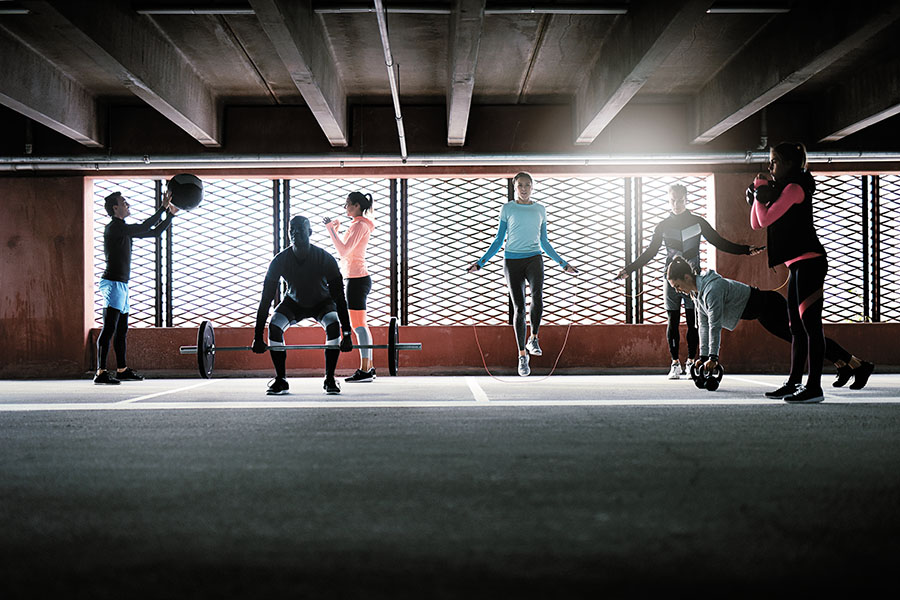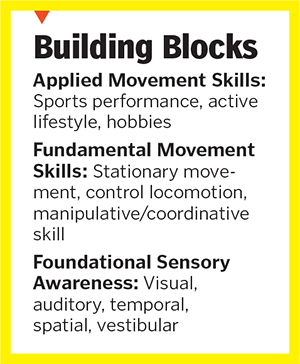
Right from birth, babies are inundated with sensory experiences that lead to a keenness to learn. They are constantly watching, trying to move, touch and taste just about anything they can lay their hands on. As they grow, their ability to control, balance and move gradually advances. Physical development is about changes, growth and skill development of the body, muscles and senses.
Participation in any activity or following a dedicated exercise regime changes the way the body system works. The degree of an individual’s fitness qualities determines their health and ability in sport. These are known as health-related fitness components and motor fitness components. Motor skills related to fitness are dexterity, balance, power, coordination, reaction time and speed. They are linked to muscle activity. These can be carried out when the brain, nervous system and muscles work together.
Having said that, these motor skills are formulated within an environment of rich sensory inputs created by motor units, received and processed by the brain. Maladaptation to physical functionality happens due to a sedentary lifestyle. These make the body metabolically inefficient, causing injury, especially when adapting to an active lifestyle or doing intense training. In the absence of movement skills, techniques and efficiency, energies are bound to be wasted. On the other hand, efficiency in movement generates better performance, leading to greater energy conservation and superior safety. An easy way to change a sedentary lifestyle is to stand more and sit less.
 When we learn movement as children, we discover the ability to walk on two feet without caring about the distance covered, repetitions completed and calories burnt. Our focus is to learn new movements and reach a new level. This is when we harness our metabolic capacity, and use it for purpose of sport and play. As we discontinue physical activities, the developed neural system starts to disremember the motor skills, thereby leading to a higher vulnerability of imbalances and injuries.
When we learn movement as children, we discover the ability to walk on two feet without caring about the distance covered, repetitions completed and calories burnt. Our focus is to learn new movements and reach a new level. This is when we harness our metabolic capacity, and use it for purpose of sport and play. As we discontinue physical activities, the developed neural system starts to disremember the motor skills, thereby leading to a higher vulnerability of imbalances and injuries.
Consequently, exercising is vital if one intends to sustain an active lifestyle. It can help raise metabolism, enable one to lose weight or maintain it, lessen stress, anxiety and depression, improve mood, maintain brain function, promote regular bowel movements and develop sleep quality.
Expert trainers design fitness programmes that mimic your natural movements, thus refining basic motor skills and improving overall wellness. In other words, less pain, more stimulation and the facilitation to do things you never imagined doing. After all, movement is crucial to living.
[“source=forbesindia”]











